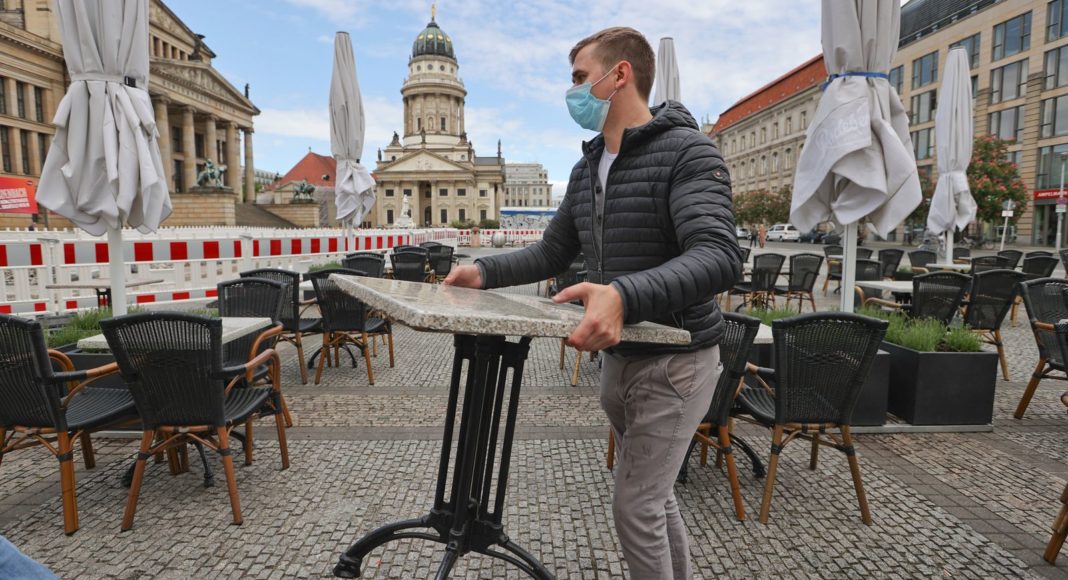Germany is officially in recession after its economy shrank by 2.2% in the first quarter of the year as the global coronavirus shutdown began to bite.
The latest official data gives an insight into the damage caused by the COVID-19 pandemic to Europe’s biggest economy, with worse expected to come.
Chancellor warns of a ‘significant recession’
The fall over the three months to March was the second-biggest quarterly decline since German reunification in 1990.
It was beaten only by a 4.7% drop in the first quarter of 2009 at the height of the financial crash.
It follows a 0.1% contraction in the fourth quarter, which was revised down from an initial report of zero growth.
That change puts Germany into a technical recession, with two consecutive quarters of economic contraction.
Like other European countries, Germany did not go into lockdown until around mid-March, and so the main impact of the restrictions on people and businesses will only become apparent in the current second quarter.
A 10% economic contraction is widely forecast for the period, although “the exact extent of the slump depends in part on the easing of restrictions on public life”, said Albert Braakmann of Germany’s federal statistics office.
ING’s chief economist for the eurozone, Carsten Brzeski, said: “If today’s data are the result of two weeks of lockdown, three more weeks of lockdown and a very gradual lifting of some measures do not bode well for the second quarter.”
It strengthens expectations that Germany is facing its deepest recession since World War Two.
:: Listen to the Daily podcast on Apple Podcasts, Google Podcasts, Spotify, Spreaker
But forecasts are worse for other European countries including France and Italy, which are already in recession, after the economies shrank by 5.8% and 4.7% respectively in the first quarter.
Data already released has shown that the 19-nation eurozone’s economy shrank by a record 3.8% in the first quarter as the economy ground to halt.
Allianz economist Katharina Utermoehl said in a research note that the German economy looked set to emerge faster and in a stronger position than most of its neighbours.
She pointed out that other nations needed stricter and longer lockdowns and their greater reliance on the services and tourism sectors.
She also said “the decisive and comprehensive policy action on behalf of the German government has been key in limiting the economic damage”.
Many German employers were able to switch staff to shorter working hours during the outbreak, avoiding mass redundancies, under the terms of a €750bn (£668bn) government rescue package.
The country’s 16 states also chose to allow factories and building sites to remain open.
Recent data showed construction – which accounts for almost 10% of the economy – grew by 1.8% in March.




